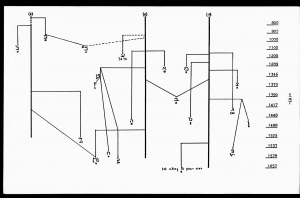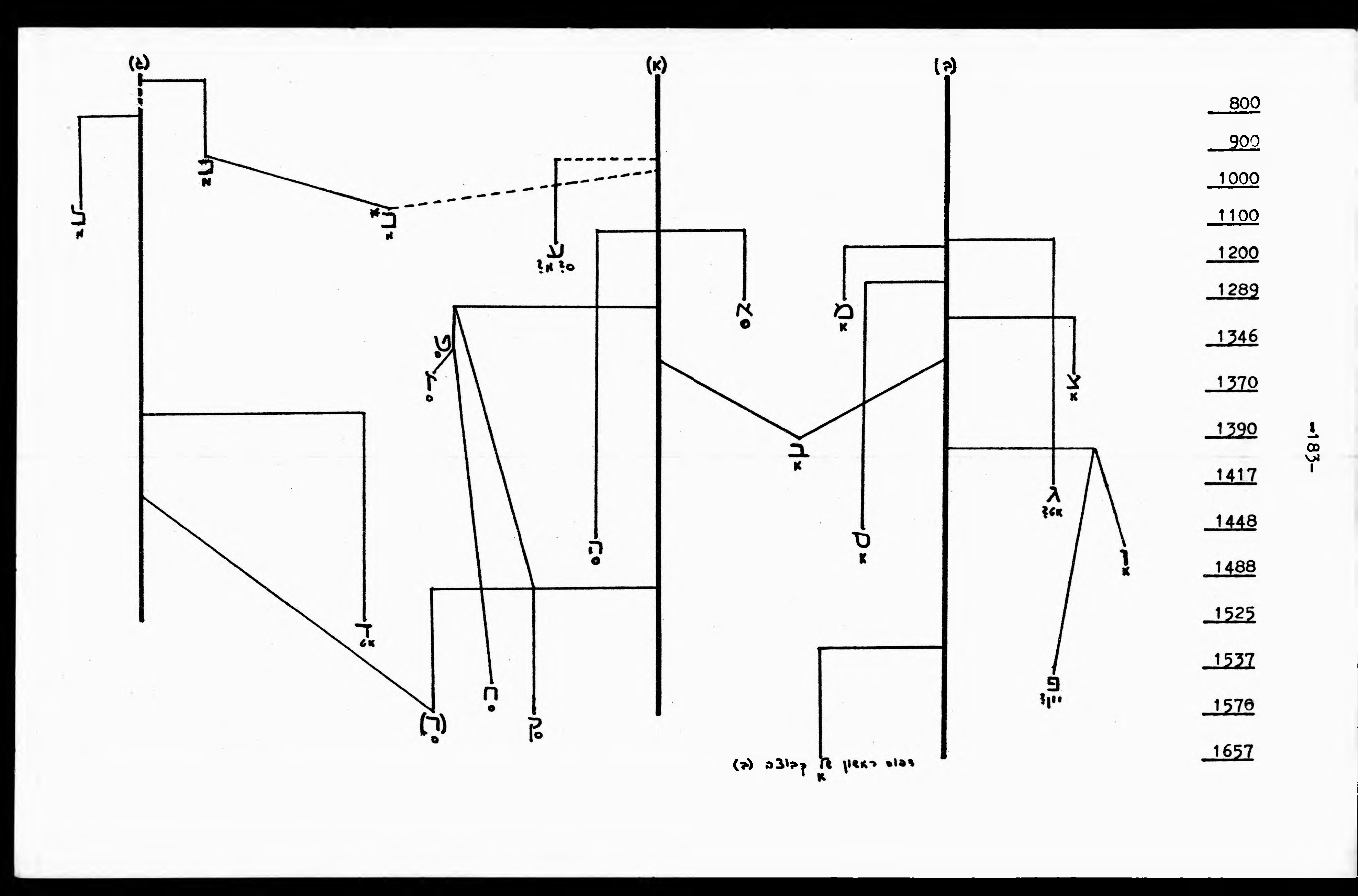⤷ You are here:
⋯ Miscellanea (Ketubot, Art, Essays on Prayer, &c.) —⟶ Meta Topics —⟶ Open Siddur Project —⟶ Development Sorted Chronologically (old to new). Sort most recent first? The inaugural first post here at the Open Siddur Project website. . . . I began by explaining that in the experience of religion there is a contradiction between the individual’s desire for authentic experience and their need for relevant tools to engage individual growth vis-à-vis the project of Judaism. This contradiction is actually a design challenge for useful tools in Judaism’s toolkit of educational and spiritual resources for its participants. The imperfect present is expressed in many current expressions of the Siddur. Although a siddur’s nusaḥ is an authentic expression of a tradition, its utility as a static tool for engaging the creative improvisation required for sinciere spiritual expression (as well as its ability to serve as the traditional tool for educating Jews in sourcetext) is certainly questionable. Our solution is a siddur that is a Siddur that users can build for themselves. Ingredients from all available siddur texts (i.e., copyright permitting) will be available for building siddurim ranging from unchanged nusaḥ Ashkenaz, to mashups of different nusḥaot with additional prayers and art added by the user, with user edited translations they contribute to, and with commentary they share with other users. In this way, a siddur user becomes a sophisticated master of t’fillah, seriously engaged in the prayer authored and offered by Jewish tradition with the freedom to enrich the tradition from their own experience privately or publicly. . . . The logo of the Open Siddur Project, as derived from the “color wheel” of the Bauhaus artist Johannes Itten (1961). . . . Categories: Tags: 21st century C.E., 58th century A.M., arts & craft movement, Keter, ofanim, סנדלפון Sandalfon, Wheel Contributor(s): Open . . . Open . . . Open . . . Lead developer, Efraim Feinstein, recently contributed this helpful diagram of Open Siddur’s architecture. . . . The Jewish Day School systems are filled with many talented students, and we would like to reach out to those interested in technology and computer science, particularly in high schools. The Open Siddur Project offers an opportunity for these students to participate in a real free software and open source project that is also relevant to the entire Jewish community. We invite them to participate in development discussions, provide original research, learn and write programs in a number of computer languages, edit, proofread, and correct texts, and work with others of many different backgrounds, in a pluralistic Jewish context. . . . The . . . Open . . . Hello . . . In education, technology is a means to an end, not an end in itself. There are some problems technology can solve, and others it can’t. As Joel Grishaver said better than I can, technology is a “plus” not “or” proposition. Learners will have different success rates using technological solutions, such as distance learning, and the use of computers cannot take the place of a real-world social community. On the other hand, technology also has the potential to transform learning and learning environments and to make both learning materials and the teachers to guide their use accessible where they would not have otherwise been. . . . A series of tests to determine how well some popular and some less well-known web browsers perform in supporting the technology for displaying Hebrew text. In particular, I’m interested to see which browsers are failing to use a web standard called CSS @font-face to properly display Unicode Hebrew fonts that support the full range of Hebrew diacritics and which contain excellent font logic for diacritical positioning. . . . Categories: Tags: Contributor(s): . . . Categories: Tags: Contributor(s): . . . Categories: Tags: Contributor(s): This is a generated list of all the prayers, piyyutim, pizmonim, etc., shared through the Open Siddur Project, sorted alphabetically. . . . . . . Categories: Tags: Contributor(s): A test page for testing new wordpress code. . . .
Stable Link:
https://opensiddur.org/index.php?cat=1177
Associated Image: (This image is set to automatically show as the "featured image" in shared links on social media.)
Terms of Use:
Be a mentsch (a conscientious, considerate person) and adhere to the following guidelines:
Additional Notes:
Support this work:
The Open Siddur Project is a volunteer-driven, non-profit, non-commercial, non-denominational, non-prescriptive, gratis & libre Open Access archive of contemplative praxes, liturgical readings, and Jewish prayer literature (historic and contemporary, familiar and obscure) composed in every era, region, and language Jews have ever prayed. Our goal is to provide a platform for sharing open-source resources, tools, and content for individuals and communities crafting their own prayerbook (siddur). Through this we hope to empower personal autonomy, preserve customs, and foster creativity in religious culture.
ויהי נעם אדני אלהינו עלינו ומעשה ידינו כוננה עלינו ומעשה ידינו כוננהו "May the pleasantness of אדֹני our elo’ah be upon us; may our handiwork be established for us — our handiwork, may it be established." –Psalms 90:17
| ||
Sign up for a summary of new resources shared by contributors each week
  |

